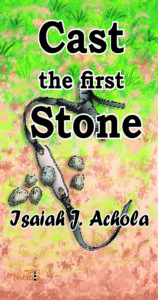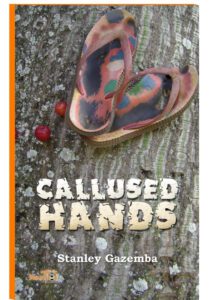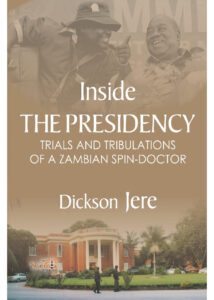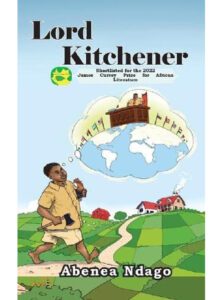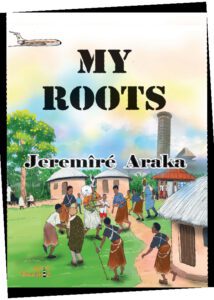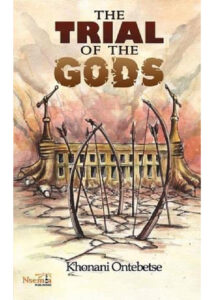
- Title: The Trial of The Gods
- Year: 2011
- Author: Khonani Ontebetse
- Publisher: Nsemia Inc. Publishers, Ontario, Canada
- Reviewed on: August 2, 2023
With the land that has been stolen from many Africans all over the continent, British rule of lands such as Botswana, it is not difficult for the lead character of The Trial of the Gods (Ontebetse, 2011) to answer the question: “Where is my homeland?” This work of fiction written by Khonani Ontebetse, an African journalist, tells the story of Jay Setlhare who battles with courts, gets the help of NGOs and human rights groups from all over the world and garners media attention by fighting to stay on his ancestral homeland – the (Central Kalahari Game Reserve) CKGR in Botswana. For the protagonist of Ontebetse’s story, it is Jay’s strong ties to his African cultural heritage and his strong ties to his African homeland that make him fight so passionately for what he believes in.
At the beginning of the book, Jay enters the courtroom wearing hides and horns – traditional clothing of his clan. Jay fights so vehemently for his homeland that he even ends up in prison, coming out ready to fight for his homeland once again with the courts and the authorities. He is a man ruled by his gods – his ancestors that seem to guide him with a strong spiritual hand and help him in his fight. This is why the fight of Jay Setlhare is called The Trial of the Gods (Ontebetse, 2011).
Unlike other books that Nsemia Press has published, such as Till I’m Laid to Rest by Garfield Ellis (2010), where the protagonist of that story, Shirley Temple Brown, has a disconnection from her Jamaican roots and feels no place of home – this book from Khonani Ontebetse has a different twist of a man fighting for his homeland and having a deep connection to his African roots and heritage. Mary Louise McCarthy’s book My Critical Chatter: An Autobiographical Narrative from the Black Diaspora (2011), also helps to round out three books from Nsemia Press that are all a must read, as McCarthy’s book also discusses the real-life story of an African-Canadian woman who does belong by birthright to Canada, however is constantly treated as though she does not. These three books all give a deep understanding of varying situations for Africans both on and off the continent and what their situations are like in modern life.
Main Theme of The Trial of the Gods
One may wonder why a small African reserve in Botswana would ignite such international attention as the CKGR. Media from around the world were interested in the plight of the Barsawa people, where Jay is from, as well as national human rights groups such as Survival International wanted to help Jay with his fight. Here are some poignant words and words that feed eternal life from the protagonist:
“Jay had learnt that best kept secret in CKGR after all, was not the discovery of diamonds by the powerful and corruptible who wanted to come up with a new deadly route in humanity, but his people’s ancient simple life style. That was the secret, that was how humankind used to be. And no matter how civilized the leaders were, even to the extent of using modern courts, they will never win a battle against their own ancestors’ way of life which Jay’s people clung to with a shocking tenacity, even up to this day. The ancestors of the leaders, realizing how their own new generation had betrayed them as far as culture and tradition were concerned, decided to be on the side of Jay’s people and his powerful spiritual gods. It was The Trial of the Gods (Ontebetse, 2011, pg. 218).”
Written in the short sentences and reportage style of a journalist, Ontebetse’s chronicling the fight for the CKGR is also a fight against tradition and modernity. Jay embraced his African ancestral customs and worshipped his homeland – the CKGR. Jay’s struggle is reflective of the battle many people from all over the world, from all different cultures, have of the effects of modernity interfering with traditional customs. As government and big business often steal the land of Indigenous peoples all over the world, mainly because of the wealth of natural resources in the earth – they are also stealing the wealth of human resources from the earth. Here are more words from another character in the novel, Qoero; words that ring with so much eternal truth for so many African people:
“‘I agree with Lere,’ she said. ‘It could be true that we were moved to this place because of the European farmers’ oppression. Ever since then we have lived happily here. Strange things never touched us. The who’e desert is our home. We the Barsawa, own this desert. The story I got from my father who died during the locust swarm when people like Jay were born, is that we were always pushed by stronger groups. First it was the Boers from Sausa Aforika (corruption of South Africa). We landed at the then Kgalagadi, what is now called Kalahari Desert. The word Kgalagadi means thirst and struggle for survival. That explains the harsh conditions we had to endure; climatic conditions and the wounds inflicted upon us by our so-called masters even today. Don’t we carry the scars even today? she asked and then continued.’
“‘We have tattooed tears. You will never find a happy face borne by even one of our people. It is not that we were wanderers; those who were stronger than us, those who love war, forced us. As a peace loving people we had no choice but to find sanctuary in this desert. And now the relocation’” (Ontebetse, 2011, pg. 28-29).’”
Another highlight of the book is Jay’s friendship with Jamana. It is said in the book that: “Greetings from a friend are like medicine” (Ontebetse, 2011, pg. 99). The is a relationship almost akin to the brothers of Moses and Aaron in the Bible. As Jay sees himself called on by the gods to save the CKGR and his Barsawa people, so too goes the original story of the Old Testament of God calling upon Moses, with Aaron’s help, to bring the Hebrews out of Egypt. The book The Trial of the Gods (Ontebetse, 2011) reads just as excitingly as The Book of Exodus in the Bible.
Donna Kakonge

